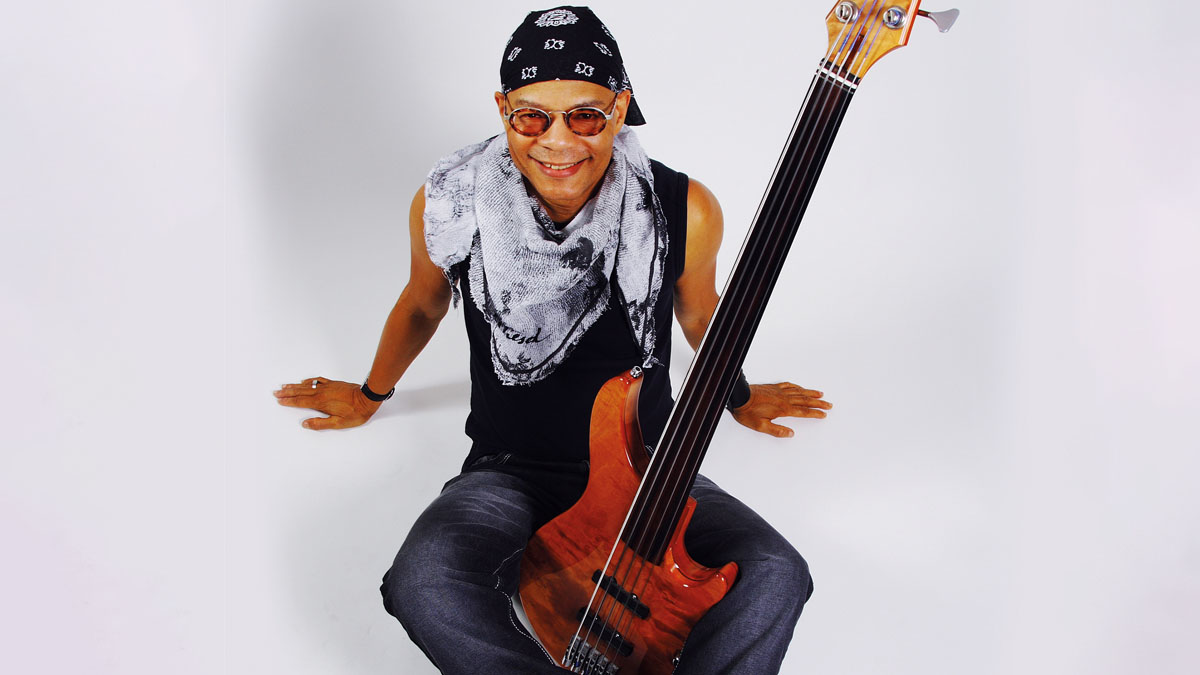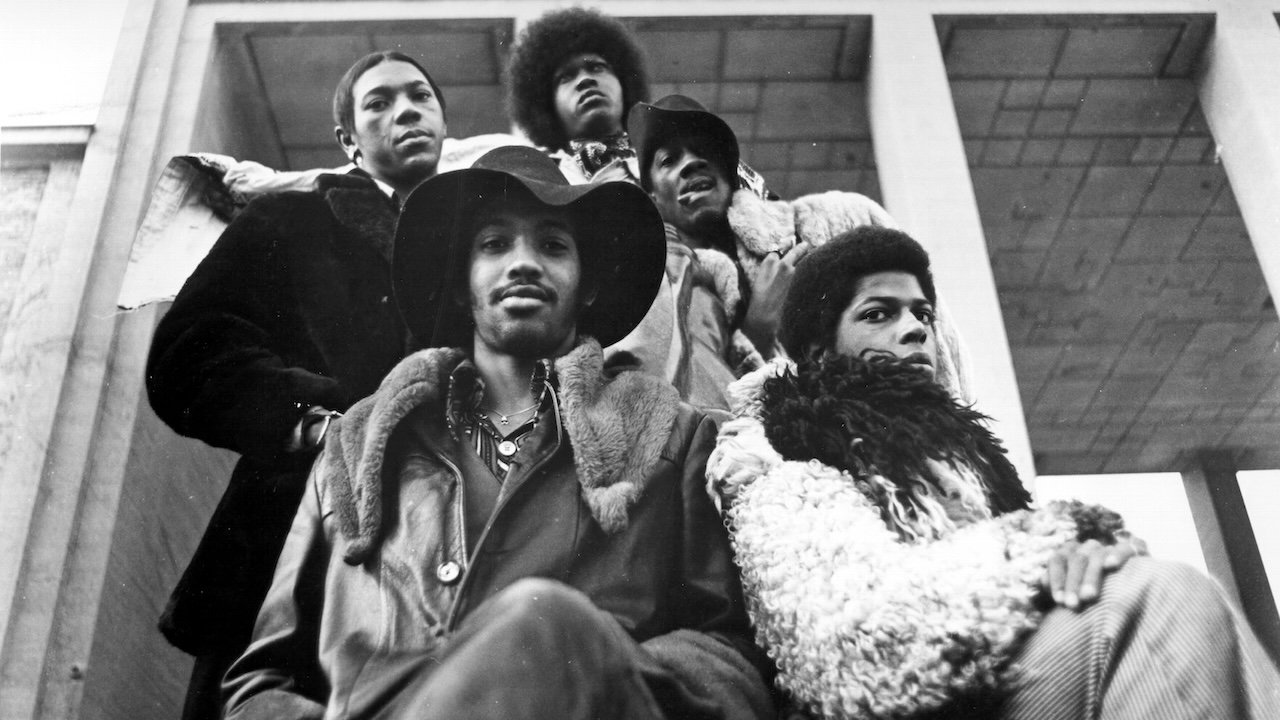Fernando Saunders on Lou Reed, playing the White House and hitting Harlem jazz clubs with the Czech political elite
Ahead of the release of his upcoming album We Are People, the prolific bass session legend and solo artist shares a slew of stories from his remarkable career

All the latest guitar news, interviews, lessons, reviews, deals and more, direct to your inbox!
You are now subscribed
Your newsletter sign-up was successful
Few musicians have as advanced a resume as Fernando Saunders, the Detroit-born singer, songwriter and producer who has worked alongside a host of major names. He first came to prominence alongside the disco musician Hamilton Bohannon, before finding wider fame with the Jeff Beck/Jan Hammer Group.
This in turn led to fruitful partnerships with Lou Reed and Marianne Faithfull, as well as the beginning of a solo career that endures to this day, alongside recordings and performances with Joan Baez, Steve Winwood, Eric Clapton, Jimmy Page, Joe Cocker, Slash, Heart, Pat Benatar, Tori Amos and John McLaughlin.
A recent project with the Seattle musician JR Smith was released recently as Adams Traktor, giving Bass Player the opportunity to sit down and discuss the low frequencies with Saunders, one of the true greats of our community.
How did you first meet Lou Reed?
“I was playing with Jeff Beck, and Lou was a big fan of Jeff. His manager Eric Kronfeld said, ‘Fernando, Lou’s looking for a bass player – but not just any bass player. They need somebody to bring something new to the project, like a different personality.'
"So Lou came to watch me play, and after the concert, he said, ‘Wow – I like how you play the bass with melody.' I played him a song of mine called Reviens Cherie, which I’ve always thought was ahead of its time. Lou said, ‘If you wrote that song, you understand my music,’ and we ended up recording that song together."
How would you describe Lou?
All the latest guitar news, interviews, lessons, reviews, deals and more, direct to your inbox!
“Obviously, he was a big star, but he was a good-hearted person, you know. He just wanted to feel accepted. When I first met him, I didn’t know his whole history. He did tell me some things. He told me that he’d stopped doing drugs and drinking a lot.
I didn’t know about the electroshock treatment Lou'd been through when he was young, or any of that stuff. I just knew that we got along, and as the years passed, we built a deep friendship
"He was painfully honest about that, but I didn’t know about the electroshock treatment he’d been through when he was young, or any of that stuff. I just knew that we got along, and as the years passed, we built a deep friendship.“
What was he like to record with?
“The first time we went into the studio together, which was when we recorded The Blue Mask in 1982, Lou talked to me about music. He said, ‘You hear this chord? This is a G chord. You don’t have to fill it up with a lot of music. You can just listen to the chord. You can play an arpeggio, or just strum it.' I knew what he meant. He was saying that there’s a lot of music in a single chord.
“That meant I had total freedom with the bass. As a matter of fact, I’d played with all these people – Jeff Beck, John McLaughlin – but the biggest showcase of my bass playing was with that very non-commercial album. But you know, he trusted me. He’d say, ‘I’m going out for a few hours, Fernando,’ and leave me to work on the songs in the studio. I didn’t know where he was going. I realized later that he just wanted my input.“
What bass gear do you use nowadays?
“I played Modulus Graphite basses for years, and then a few years ago I met a luthier in the mountains of Switzerland called JMC. At the time they were making acoustic guitars and they wanted to switch to making electrics, so they made me a fretless five-string with double-wound EMG pickups.
“It’s really, really beautiful, and I’ve been using it ever since then. I’d like to add a graphite neck to it, because with wood necks, you always have to adjust them, and graphite doesn’t change. I use D’Addario strings, and for amps, it’s Aguilar and Ampeg.“
I had total freedom with the bass. As a matter of fact, I’d played with all these people – Jeff Beck, John McLaughlin – but the biggest showcase of my bass playing was with The Blue Mask
You divide your time between the Czech Republic and the USA these days.
“Yes. How that happened was that Lou had a very close connection with [the former Czech President] Vaclav Havel. We played there in the mid-'90s, right after it opened up – you know, when it became free – because they invited Lou to play there.
“Previously, we had played in the White House when Bill Clinton was the president. Clinton wanted to give a special dinner in honor of President Havel, so they said to him, what music would you like to hear? And out of all the people in the world, he said, ‘Lou Reed.' So we go to the White House, we do the concert and it’s really great, and then the next day, we go back to New York.
“Two days later, Havel calls, and says that he wants to go to Harlem and listen to jazz music. So we go to some clubs in Harlem – and it was really kind of funny, because we were with all these policemen, you know, and you feel like you’re really important.
“Anyway, I got to know him really well, and some years later I met a booking agency over there and they said, ‘Fernando, why don’t you come over and play your own music here?’ The album I released in 2007, I Will Break Your Fall, was doing really well there, so this agency started bringing me over here a lot.“
Your son András Kállay-Saunders is a well-known singer in Hungary.
“He is. He competed in Eurovision in 2014 for Hungary, and he did really well. He came second in their version of American Idol and fell in love with the girl that won. In fact, I think he let her win!“
- Fernando Saunders' new album, We Are People, will be out in the fall.
Bass Player is the world’s most comprehensive, trusted and insightful bass publication for passionate bassists and active musicians of all ages. Whatever your ability, BP has the interviews, reviews and lessons that will make you a better bass player. We go behind the scenes with bass manufacturers, ask a stellar crew of bass players for their advice, and bring you insights into pretty much every style of bass playing that exists, from reggae to jazz to metal and beyond. The gear we review ranges from the affordable to the upmarket and we maximise the opportunity to evolve our playing with the best teachers on the planet.

